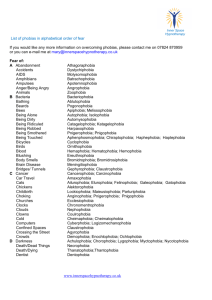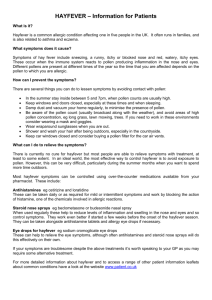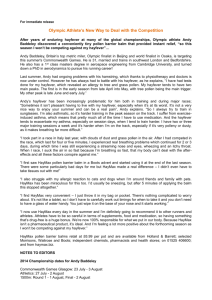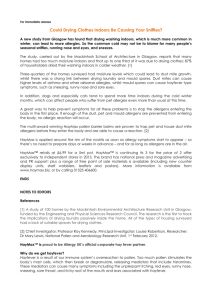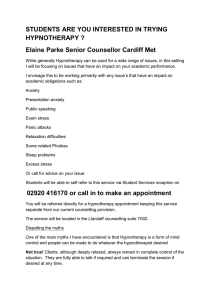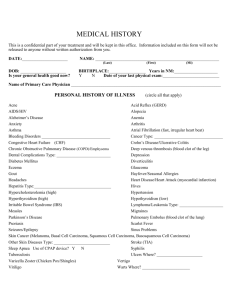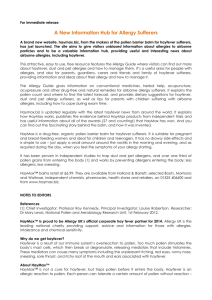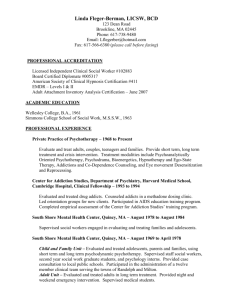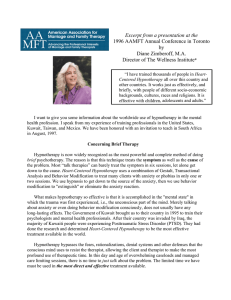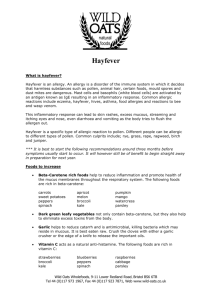Marmite pollen - love it or hate it
advertisement
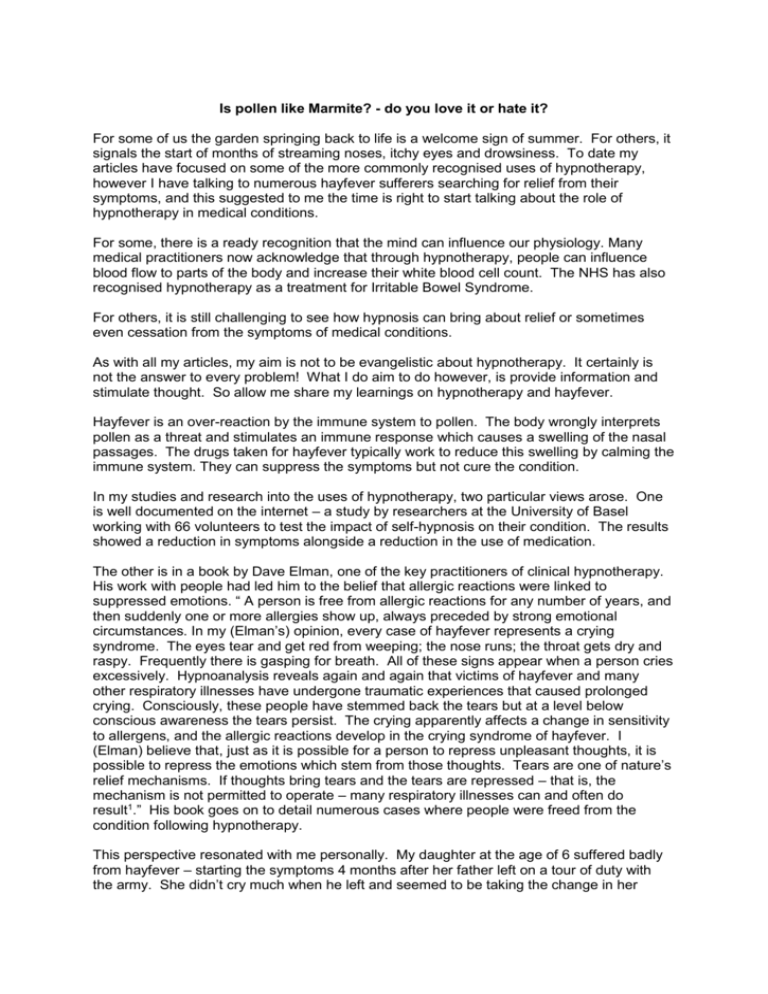
Is pollen like Marmite? - do you love it or hate it? For some of us the garden springing back to life is a welcome sign of summer. For others, it signals the start of months of streaming noses, itchy eyes and drowsiness. To date my articles have focused on some of the more commonly recognised uses of hypnotherapy, however I have talking to numerous hayfever sufferers searching for relief from their symptoms, and this suggested to me the time is right to start talking about the role of hypnotherapy in medical conditions. For some, there is a ready recognition that the mind can influence our physiology. Many medical practitioners now acknowledge that through hypnotherapy, people can influence blood flow to parts of the body and increase their white blood cell count. The NHS has also recognised hypnotherapy as a treatment for Irritable Bowel Syndrome. For others, it is still challenging to see how hypnosis can bring about relief or sometimes even cessation from the symptoms of medical conditions. As with all my articles, my aim is not to be evangelistic about hypnotherapy. It certainly is not the answer to every problem! What I do aim to do however, is provide information and stimulate thought. So allow me share my learnings on hypnotherapy and hayfever. Hayfever is an over-reaction by the immune system to pollen. The body wrongly interprets pollen as a threat and stimulates an immune response which causes a swelling of the nasal passages. The drugs taken for hayfever typically work to reduce this swelling by calming the immune system. They can suppress the symptoms but not cure the condition. In my studies and research into the uses of hypnotherapy, two particular views arose. One is well documented on the internet – a study by researchers at the University of Basel working with 66 volunteers to test the impact of self-hypnosis on their condition. The results showed a reduction in symptoms alongside a reduction in the use of medication. The other is in a book by Dave Elman, one of the key practitioners of clinical hypnotherapy. His work with people had led him to the belief that allergic reactions were linked to suppressed emotions. “ A person is free from allergic reactions for any number of years, and then suddenly one or more allergies show up, always preceded by strong emotional circumstances. In my (Elman’s) opinion, every case of hayfever represents a crying syndrome. The eyes tear and get red from weeping; the nose runs; the throat gets dry and raspy. Frequently there is gasping for breath. All of these signs appear when a person cries excessively. Hypnoanalysis reveals again and again that victims of hayfever and many other respiratory illnesses have undergone traumatic experiences that caused prolonged crying. Consciously, these people have stemmed back the tears but at a level below conscious awareness the tears persist. The crying apparently affects a change in sensitivity to allergens, and the allergic reactions develop in the crying syndrome of hayfever. I (Elman) believe that, just as it is possible for a person to repress unpleasant thoughts, it is possible to repress the emotions which stem from those thoughts. Tears are one of nature’s relief mechanisms. If thoughts bring tears and the tears are repressed – that is, the mechanism is not permitted to operate – many respiratory illnesses can and often do result1.” His book goes on to detail numerous cases where people were freed from the condition following hypnotherapy. This perspective resonated with me personally. My daughter at the age of 6 suffered badly from hayfever – starting the symptoms 4 months after her father left on a tour of duty with the army. She didn’t cry much when he left and seemed to be taking the change in her stride but come that April, a strong allergic reaction had appeared from no-where. Her Daddy is now back and to date she has no symptoms so I await with interest ………….. So to any sufferers of hayfever out there, has anything you have read stirred some interest? Whilst I do not have the resources of Basel University, I am looking to run a study to see what impact hypnosis can have. The work would initially involve learning techniques in selfhypnosis and progress to hypnoanalysis by consent only. Anyone interested in taking part, please get in contact in complete confidence.
